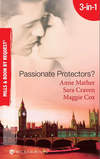Kitabı oku: «Stolen Summer»

Mills & Boon is proud to present a fabulous
collection of fantastic novels by
bestselling, much loved author
ANNE MATHER
Anne has a stellar record of achievement within the
publishing industry, having written over one hundred
and sixty books, with worldwide sales of more than
forty-eight MILLION copies in multiple languages.
This amazing collection of classic stories offers a chance
for readers to recapture the pleasure Anne’s powerful,
passionate writing has given.
We are sure you will love them all!
I’ve always wanted to write—which is not to say I’ve always wanted to be a professional writer. On the contrary, for years I only wrote for my own pleasure and it wasn’t until my husband suggested sending one of my stories to a publisher that we put several publishers’ names into a hat and pulled one out. The rest, as they say, is history. And now, one hundred and sixty-two books later, I’m literally—excuse the pun— staggered by what’s happened.
I had written all through my infant and junior years and on into my teens, the stories changing from children’s adventures to torrid gypsy passions. My mother used to gather these manuscripts up from time to time, when my bedroom became too untidy, and dispose of them! In those days, I used not to finish any of the stories and Caroline, my first published novel, was the first I’d ever completed. I was newly married then and my daughter was just a baby, and it was quite a job juggling my household chores and scribbling away in exercise books every chance I got. Not very professional, as you can imagine, but that’s the way it was.
These days, I have a bit more time to devote to my work, but that first love of writing has never changed. I can’t imagine not having a current book on the typewriter—yes, it’s my husband who transcribes everything on to the computer. He’s my partner in both life and work and I depend on his good sense more than I care to admit.
We have two grown-up children, a son and a daughter, and two almost grown-up grandchildren, Abi and Ben. My e-mail address is mystic-am@msn.com and I’d be happy to hear from any of my wonderful readers.
Stolen Summer
Anne Mather

Table of Contents
Cover
About the Author
Title Page
CHAPTER ONE
CHAPTER TWO
CHAPTER THREE
CHAPTER FOUR
CHAPTER FIVE
CHAPTER SIX
CHAPTER SEVEN
CHAPTER EIGHT
CHAPTER NINE
CHAPTER TEN
CHAPTER ELEVEN
Copyright
CHAPTER ONE
IT was a little after four o’clock when Shelley reached the turn-off Marsha had indicated in her letter. ‘Just a few miles beyond the Ripon roundabout,’ she had written. ‘Just look for the sign for Bedale and Leyburn. It’s the A684. You can’t miss it!’
And she hadn’t, reflected Shelley thankfully, glad there was only about an hour of her journey left. In spite of the high speeds she had been able to maintain on the motorway, she was tired, and she half wished she had taken Marsha’s advice and come up by train instead.
But at least this way she would have a car to use while she was here, Shelley reminded herself firmly. And she might be glad of that, bearing in mind Marsha’s own description of the area in which she lived. Craygill was not served by buses, and there were no convenient underground stations within walking distance of her home. Indeed, Shelley had always been amazed that her friend had adapted herself to life in a Yorkshire dale so easily, after spending the first thirty-eight years of her existence in London. But, evidently, Marsha liked it. Her letters were always full of the enjoyment she got from working in such picturesque surroundings, and the infrequent visits she had made back to the capital had never tempted her to remain.
And ever since she had decided to go and live in the area, to be near her son, Marsha had been trying to persuade Shelley to come and visit. ‘You’re like everyone else,’ she exclaimed. ‘You think there’s nothing worth seeing north of Watford!’ she declared, completely forgetting that Shelley had been born and bred in Teesdale, and had lived there for the first six years of her life.
Not that Shelley could remember those early years too well. Her father, the younger son of a farming family, disappointed all his relatives by showing more interest in books and learning than in how many ewes his father was breeding. Nevertheless, he stuck in at school and eventually gained a place in a university, returning home at twenty-two to teach in the local school. But there were changes being made. Small schools were being closed and the pupils bussed to larger establishments. Shelley’s father, married by this time and responsible for a family, found himself out of a job, and rather than accept his parent’s charity, he had moved south, to Hampshire, and resumed his teaching career.
The only time afterwards that Shelley remembered visiting the farm at Tarnside was when she was twelve, and her grandfather died. Her parents went north for the funeral, but it had not been a comfortable occasion. Her father’s elder brother, Uncle George, seemed to imagine the only reason they had come was to stake some claim to the farm, that he had worked for since he was a boy. There had been a lot of unpleasantness after the funeral was over, and although her grandmother had tried to adjudicate between the two brothers, they had not parted on the best of terms. Neither Shelley, nor her parents, had gone back to Tarnside, and these days Shelley had no idea if her uncle was even still alive. Her own parents were dead, killed in an avalanche during a ski-ing holiday in Austria, just after she had started working for the Courier.
It had been a crushing blow to the twenty-one-year-old Shelley, particularly as she had been a much-loved only child. But it was a blessing that because of her job with the London daily newspaper she was no longer living at home. After a tearful weekend, going through the rooms which held so many happy memories, she put sentiment aside and sold the house, using the money to move out of the bed-sitter—which had been all she could afford—and into a flat of her own. It had been a painful business, but at least that way she was able to keep some of her most treasured possessions; and the furniture in her bedroom, and the chesterfield, where her mother used to sit and sew, were a constant reminder of her childhood.
Of course, that was all in the past now, Shelley mused reminiscently, as she drove through Aiskew into Bedale, and admired the blue face of the church clock that looked down over the High Street. ‘Four-fifteen,’ she murmured, resisting the temptation to stop for some refreshment. Marsha had said she would have tea waiting for her, and it wouldn’t be fair to waste time so close to her destination.
Marsha! A faint smile touched her lips as she thought about the woman who had brought her to this enchanting part of England. And it was enchanting, with its sun-dappled fields and blossom-covered hedges, all burgeoning now as spring gave way to early summer. She had not expected it to be quite so civilised, after her recollections of Teesdale, but the countryside around the little market town was infinitely pleasing. Crakehall; Patrick Brompton; even the names were delightful. She was so grateful to Marsha for inviting her. It was exactly the sort of change she needed. Once again, Marsha had come to her rescue, and she looked forward to the day when she could repay her in some way.
She had first met Marsha just a few weeks after her parents were killed. Marsha had stormed into the office to complain about an article one of the Courier’s correspondents had written about her, and because it was February and many of the staff had succumbed to the current ‘flu epidemic, Shelley had been asked to deal with her.
In fact, the interview had not turned out at all as she had anticipated. Having heard of Marsha Manning, having admired her work for some time, Shelley was able to understand the painter’s anger at being patronised, at being called an artist, and at being described as a lonely woman, taking out her frustration in oils and canvas. The fact that Marsha’s marriage had broken up only months before the article was written had fuelled the reporter’s penchant for drama, and what had begun as a serious discussion of Marsha’s work had deteriorated into little more than a libellous attack on her private life.
From the start, Shelley had sympathised with the other woman, and although there was more than ten years difference in their ages, and Marsha was much more worldly-wise and cynical, nevertheless, a curious friendship had grown up between them. It was a friendship strengthened by their mutual sense of loss—Shelley had missed her parents dreadfully in those early days, and Marsha was still recovering from a rather messy divorce. A casual invitation to lunch had initiated an association that had become one of the most important elements in Shelley’s life, and the years since then had only fortified the affection they had for one another.
In a way, Shelley admitted, Marsha had taken the place of her parents. Not as a mother; she was too young for that; but perhaps as an understanding older sister, someone Shelley could turn to for advice about the things—and people—that were important to her. She had grown used to turning up at Marsha’s studio at all hours of the day and night, knowing she was always welcome. They might not always talk; sometimes, when Marsha was engrossed in her work, Shelley would just sit and watch her; but she was there, she cared, and that was what was important. Naturally, Marsha had been the recipient of many confidences, not least those of a personal nature. As well as a willing ear, she offered a shoulder to cry on, something Shelley had been grateful for when her problems got too tough.
Of course, Shelley was working in a tough profession, that became tougher still when she left the Courier and joined the staff of Capitol Television. As a very junior associate-producer she had to suffer a lot of back-biting and jealousy, particularly when it became known that the station manager, Mike Berlitz, had a more than professional interest in her career.
In the meantime, Marsha’s career flourished. Her paintings—impressionist landscapes mostly—were proving popular with critics, and she was invited to show a collection of her work at the Shultz Gallery, a very singular honour indeed. Her son, who was away at school, returned home for his mother’s exhibition, and Shelley attended the opening with them, proud to be a part of Marsha’s well-deserved success.
It had been a less pleasant surprise when, four years ago, Marsha had decided to move to Wensleydale. With the success of her work, and the fact that she had nothing to keep her in London, she had decided to move north to be near her son, who had left university now, and joined a veterinary practice there. ‘Shades of James Herriot,’ she had said ruefully, smiling at Shelley’s shocked expression. ‘Darling, don’t look like that. Craygill is not the end of the earth. It’s just a couple of hundred miles up the motorway, with a magical mystery tour at the end of it.’
But Shelley had been less enthusiastic. Her work was demanding, and she seldom had time for holidays. Besides, the idea of driving hundreds of miles just to spend a few days in rural surroundings had seemed too much trouble, and although she and Marsha spoke together often over the ‘phone, their meetings had been confined to Marsha’s visits to London.
Until now, Shelley acknowledged wearily, the ache behind her eyes becoming an actual physical strain. It would have been easier if the winding country roads had been at the start of her journey, she conceded. Right now, even the undoubted beauty of her surroundings was little compensation. She wanted to get to her destination, take a hot bath, and go to bed. Marsha would understand. Marsha always had. That was why she had invited her.
The signs for Leyburn brought her into a busy market place, where several roads converged. Not much further now, she told herself encouragingly, turning her sleek little sports saloon on to the road for Aysgarth. Fifteen miles, at the most. With a bit of luck she’d be there soon after five o’clock.
As luck would have it, the roads were not busy once she left the town behind. But the constant convolutions of the route made any relaxation impossible, and she felt the sweat break out on her forehead as the throbbing in her head increased.
And then, without warning, the fanbelt snapped. One minute she was driving smoothly along a cathedral-like avenue of trees, and the next she heard the distinctive clatter as the rubber tore free of its housing, leaving her without any means to cool her already heated engine.
‘Damn, damn, damn!’
With a exclamation of disgust, Shelley drew the Ford into the side of the road and switched off the ignition. She had passed a village a couple of miles back, but she didn’t remember seeing a garage there. In any case, the idea of setting out to walk for any distance with an aching back and a throbbing head did not bear thinking about, and she decided she would have to wait until another car came by.
Pushing open her door, she got out, stretching her long slim body with real relief. As a matter of fact, she felt better out of the stuffy confines of the car. Leaning against the bonnet, she tipped back her head and let the cooling air blow refreshingly over her shoulders and sighed. Perhaps she should have taken a break, after all, she reflected. The fanbelt just might have lasted, if she hadn’t sustained the pressure.
The sound of a car’s engine caused her to take notice, but the shabby estate car, driven by a woman, swept by without pause. Oh, well, thought Shelley resignedly, it was going in the wrong direction anyway. Another vehicle would be along shortly. And this time she’d make sure the driver saw her.
But, in fact, several cars passed her without stopping; tourists, she suspected, with wives and children who regarded Shelley with unconcealed curiosity. Perhaps her appearance put them off, she thought uneasily. She was so accustomed to the kinks and mores of London society, she had seen nothing unusual in the very masculine lines of her black Edwardian-style pants suit, but here, miles from her normal habitat, she did feel slightly out of place. The tawny-red brilliance of her hair fought a losing battle with the loose peacock blue shirt that fell open at her throat, and although it had been neat when she left her flat that morning, by now her agitation had made a bird’s nest of its knot.
There was nothing else for it, she reflected wearily. She would have to walk, after all. At least, to the nearest’ phone box. Perhaps if she could reach Marsha, she would come out and pick her up. They could arrange for the car to be dealt with later.
Her spirits marginally less bleak, Shelley collected her bulky shoulder bag from the back of the car and locked the doors. Then, with a determined expellation of air from her lungs, she set off, not deigning to lift her thumb, even when a dust-smeared Land-Rover accelerated past her. Thank heavens it’s not raining, she thought, glancing down at the expensive suede boots which encased her legs to the knee. She had not expected to go hiking, and their velvety exterior would soon have been spoiled by trudging through muddy water. She supposed she should be ‘thankful for small mercies’, as her mother used to say. It would not hurt her to get some exercise. Even if the doctor had warned her not to subject herself to any stress, he meant stress of a different kind. Not the simple aggravation aroused at being forced to use her legs.
It was a few seconds before she realised the Land-Rover that had passed her had stopped up ahead. She had been involved with her own problems, and she had not noticed the stationary vehicle. But now, as she approached, the driver got out and walked round the back of the automobile to meet her, his expression half amused as he took in her appearance.
He was a young man, in his mid-twenties, she estimated, with dark blond hair, combed smoothly from a side parting. He was tall and lean and muscular, with hard tanned features and good bone structure. He was not conventionally handsome. The contours of his face were too irregular for that. But he was very attractive, with a thin-lipped mouth and heavily-lidded eyes, that were somehow oddly familiar.
Gathering her self-possession, Shelley gave him her most scintillating smile. If he was about to offer her a lift, she was not going to refuse it, even if she was a little chary about accepting help from a solitary stranger. She would have preferred to get assistance from one of those men who had had their wives sitting beside them, but they had not offered it. Besides, after living in London for almost ten years, she felt reasonably capable of handling any situation, and younger men, with ambitions, could usually be crushed by her intellect.
‘You couldn’t tell me where I might find a garage, could you?’ she enquired now, before he could speak. ‘I’ve broken the fanbelt on my car, and I’m a stranger to the area.’
‘Yes?’ The humour in the man’s expression deepened, and Shelley felt a rising sense of irritation. She was more accustomed to being the object of male admiration, rather than a source of amusement, and he had far too much self-confidence for someone of his age.
‘Yes,’ she replied, a little tersely, running an annoyingly nervous hand around the back of her neck. ‘You probably saw my car a few yards back. A red XR3, with black lines along the side.’
‘I saw it,’ he agreed, and apparently making a sterling effort to control his levity, he gestured towards his own vehicle. ‘Get in. I’ll give you a lift to Low Burton. There’s a garage there, that can probably help you. If not, I may be able to take you wherever you want to go.’
Shelley hesitated. ‘How far is Low Burton?’
The man shrugged. ‘About half a mile.’
‘So near?’
‘Well—maybe three-quarters,’ he conceded carelessly. ‘But it’s quite a climb—unless you’re used to it, of course.’
Shelley looked at him sharply, detecting criticism in his words, but there was no mockery in his expression now. On the contrary, he had pushed his hands into the waistline pockets of his tight-fitting jeans and was regarding her with a certain amount of sympathy—an intent appraisal that Shelley, in spite of her resentment, found disturbingly mature.
‘And—you think this garage may have what I need?’ she asked stiffly, feeling at a disadvantage and not liking it.
‘I should think so.’ The man inclined his head. ‘We have grass track racing in these parts occasionally, and Jack Smedley gets a lot of business that way. I shouldn’t think a broken fanbelt will present too many problems to him.’
‘Oh—all right.’ Glad for once of her five-feet nine inches which meant, with her heeled boots, that they were almost on eye-level terms, Shelley acquiesced. ‘Thank you,’ she added belatedly, as he closed the Land-Rover’s passenger door behind her, and she heard him say drily: ‘It’s a pleasure!’
The Land-Rover was not a very salubrious form of transport. It smelled of what Shelley could only imagine were animals, and a glance over her shoulder essayed the information that some creature or other had been carried in the back quite recently. There was a mess of straw strewn over the floor, and distinct signs of a certain lack of continence. It made her wonder if she had not been a little premature in accepting a lift, and perhaps her erstwhile knight errant should have warned her of the disadvantages before he offered her a ride.
But it was an uncharitable notion, and she speedily dismissed it. After all, the seat she was sitting on was clean, and it was saving her an obviously arduous climb. And the young man beside her probably found nothing distasteful about good, wholesome, country scents, and he himself was perfectly presentable.
Permitting herself a brief glance in his direction, Shelley had to admit he was nothing at all like the image she had kept of her father’s brother. Yet he was, apparently, a farmer—or a farmer’s son. He obviously spent a lot of time out of doors, evidenced by his dark tan, which was so unusual against the lightness of his hair. And the shirt he was wearing, that was rolled back along his forearms and opened at the neck to expose the strong column of his throat, revealed the taut muscles flexing beneath his skin, skin that was lightly covered by sun-bleached hair. Her gaze dropped to his legs, long and powerful beneath the blue denim. They would be taut and muscled, too, she knew. He was probably the local heart-throb, she decided wryly, deliberately mocking her own unwilling interest. A nice boy, but definitely much too young for her, even had she been looking for diversion—which she wasn’t.
Shaking her head, she looked away, but not before he had intercepted her appraisal. For a moment, her green-eyed gaze was caught and held by the silvery greyness of his. Then, feeling obliged to say something, if only to dispel her own disconcertment, Shelley found the words to break the pregnant silence.
‘It’s my first visit to Wensleydale,’ she said, transferring her attention to the window. ‘I didn’t realise it was quite so pretty. Do you—live around here, Mr——’
‘Seton,’ he supplied evenly. ‘Ben Seton. And yes. I live in Low Burton, actually.’
‘You do?’ Shelley looked at him again, but this time she avoided those disturbing eyes. ‘So you do know the area very well indeed.’
‘Well enough,’ he conceded, with a faint smile, and Shelley found herself resenting his cool composure. ‘Didn’t you believe me?’
‘Why shouldn’t I?’ Shelley lifted one disdainful shoulder. ‘This is hardly the sort of vehicle you’d abduct anybody in!’
He grinned then, a satisfying relaxation of his features that caused an unwilling ripple of reaction to slide along Shelley’s spine. ‘I’m sorry,’ he said, though she suspected he was nothing of the sort. ‘I’m so used to this old heap, I didn’t think you might object to it.’
‘I don’t—object to it.’ Shelley made an effort to be civil. ‘I’m sure it serves its purpose admirably.’
‘Oh, it does.’ The humour was still there in his expression. ‘Though I have to admit,’ he added, ‘it’s some time since I used the back for anything other than hauling animals!’
Shelly pressed her lips together. ‘I only meant—it smells,’ she said shortly, and he inclined his head.
‘Not what you’re used to, I’m sure,’ he commented lazily, and sensitive to any scepticism, Shelley’s patience snapped.
‘No, it’s not,’ she retorted sharply. ‘I’m from London, actually. I’m a television producer.’ She waited for him to absorb this, and then continued less aggressively: ‘So you see, riding around in muck-laden farm vehicles is hardly an everyday occurrence for me.’
‘I’m sure it’s not.’ His response was as deferential as she could have wished, yet she still had the uneasy suspicion he was only humouring her. Did he believe her? Or did he think she was only making it up to impress him? It was infuriating to realise that she cared what he thought.
‘I’m going to stay with Miss Manning at Craygill,’ she appended, refusing to admit she was trying to verify her statement. ‘Marsha Manning, that is. You may have heard of her. She’s a paint——’
‘I’ve heard of her,’ he interrupted carelessly, cutting off her explanation. ‘This is Low Burton, just ahead, by the way. Jack Smedley’s place is just off the square.’
He slowed to take a particularly sharp bend and when the road straightened out again, Shelley saw the dry stone wall of a churchyard on her left. The road ran between the wall of the church and the wall of the rectory opposite, before cottages appeared on either side, their gardens bright with blossom. Shelley identified lobelia and aubretia, and showers of snow-on-the-mountain, before the cottages too gave way to narrow town houses, with leaded window panes and polished letter-boxes.
Her attention to her surroundings precluded any further conversation, and she was relieved. She was not usually so touchy about her job, and she seldom, if ever, felt the need to brag about her importance. But this man—whoever he was—had the ability to tear away the façade she had erected around herself during the past ten years, and reduce her to the state of defending her position.
A few yards further on they entered the small market square, with a clock-tower chiming the hour, and a handful of cars parked near a group of municipal buildings. There were shops, and a small supermarket, and a collection of public houses and, just around the corner, the blue-and-white sign indicating Smedley’s Garage.
‘Would you like me to find out if he has what you want?’ her companion asked, bringing the Land-Rover to a halt by the petrol pumps.
Shelley hesitated only a moment, and then shook her head. ‘That’s okay,’ she said. ‘I can manage,’ even though she was tempted to take advantage of his offer. It would be easier for him to approach the garage owner, who he obviously knew, and explain what was required, but Shelley felt the need to demonstrate her independence. She had no intention of providing him with any more amusement. She had already proved herself to be both vain and shrewish, and no doubt his friends would enjoy his story of a helpless older woman, bowled over by his charm. Men always liked to exaggerate, and her behaviour would hardly invite his discretion.
Now, opening her bag, she searched for her wallet. ‘Will you let me buy you a drink, Mr Seton,’ she began, determined to restore the relationship to its proper footing, but once again he prevented her.
‘That won’t be necessary,’ he said, a faint edge to his voice now, as he flicked the flap of her bag back into place. Closing his fingers over the soft leather, he successfully trapped her hand inside, and his eyes were steel-hard as they met her frustrated gaze. ‘Never let it be said that a dalesman couldn’t offer a lady assistance, without requiring some payment for it.’ Her hand struggled to be free, and he let go of the bag again. ‘Enjoy your holiday,’ he added, as she thrust open her door. ‘Who knows—we may see one another again!’
‘I should think that will be highly unlikely!’ Shelley muttered under her breath, as she climbed out of the Land-Rover. And, although she didn’t look back as she strode confidently into the garage, she was conscious of his eyes upon her, until she was out of sight.
Ücretsiz ön izlemeyi tamamladınız.










